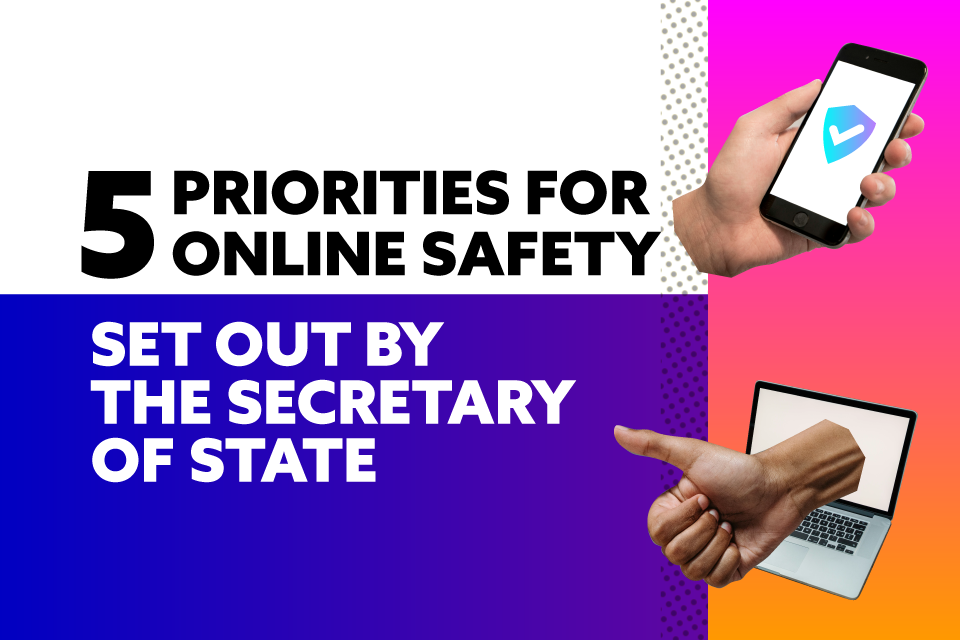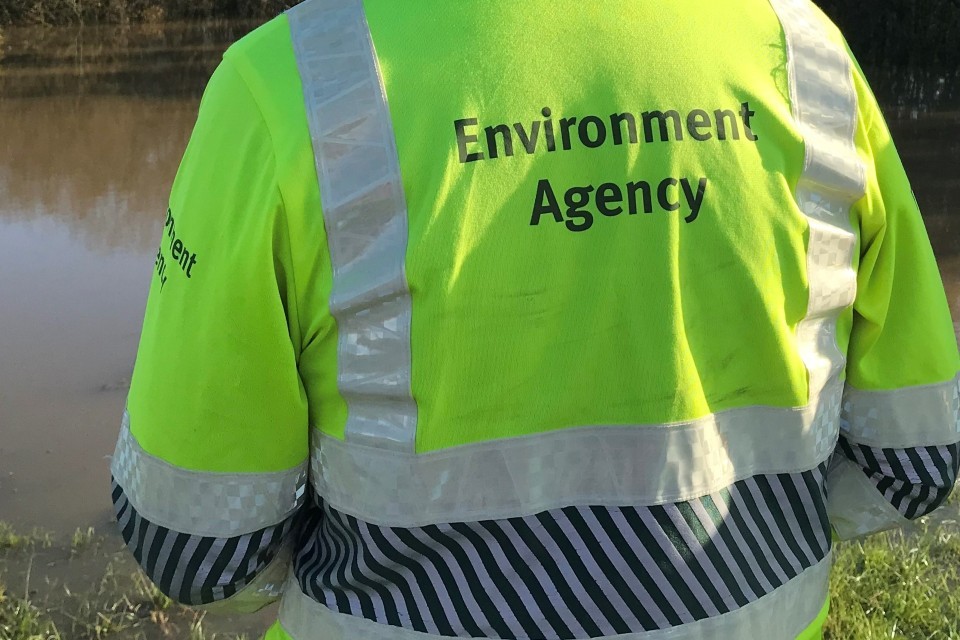- Technology Secretary exercises powers requiring Ofcom to report back on new online safety priorities.
- Government launches research project to explore impact of social media on young people’s wellbeing and mental health.
- Online safety campaigners to be consulted as government commits to ensuring future action delivers for those failed by platforms.
Technology Secretary Peter Kyle has set out his priorities for the online safety regulator, Ofcom, as it prepares to implement and enforce the laws set out in the Online Safety Act next year.
The Statement of Strategic Priorities (SSP), published today (Wednesday 20 November), includes ensuring safety is baked into platforms from the start so more harm is caught before it occurs, pushing for more transparency from technology companies on what harms are occurring on their platforms, and creating a digital world that is inclusive and resilient to harm, including disinformation.
Government is also announcing the launch of a study to explore the effects of smartphone and social media use on children, to help bolster research and strengthen the evidence needed to build a safer online world.
Ofcom will have to consider each of the government’s strategic priorities as it enforces the Online Safety Act from next Spring. Ofcom will have to report back to the Secretary of State on what action it has taken against the priorities to ensure the laws are delivering safer spaces online.
These reports will be critical to inform next steps as the government commits to learning from the implementation of the Online Safety Act and building on it where necessary.
The priorities will be finalised with the input of online safety experts and campaigners to ensure government action is informed by those with those who have experienced the offline impacts of failures in online safety. Ofcom is due to start enforcing the first duties on online platforms under the Online Safety Act from Spring next year.
Technology Secretary Peter Kyle said
Keeping children safe online is a priority for this government. That is why today I will be the first secretary of state to exercise the power to set out my strategic priorities.
From baking safety into social media sites from the outset, to increasing platform transparency, these priorities will allow us to monitor progress, collate evidence, innovate, and act where laws are coming up short.
While the Online Safety Act sets the foundation of creating better experiences online, we must keep pace with technology as it evolves to create a safer internet, especially for children.
We’re also firing the starting gun on research which will help build the evidence base we need to keep children safe online.
I am committed to using all the tools at our disposal from monitoring the impact of new laws, creating more and better evidence, and working with online safety campaigners and charities to achieve this goal.
The government is committed to implementing the Act as quickly and effectively as possible and has already acted to deliver safer experiences for people online. Earlier this year platforms’ responsibilities to remove intimate image abuse content were strengthened, whilst new data laws will help researchers gather critical evidence about online harms
A new research project has been launched to boost the evidence base around online harms, The first stage of the project will examine what methods will best help the government understand the impact of smartphones and social media use on children after a review by the UK Chief Medical Officer in 2019 found the evidence base around the links to children’s mental health were insufficient to provide strong conclusions.
The project will improve policy makers understanding of the relationship between children’s wellbeing and smartphone use and help direct future government action.
Maria Neophytou, Director of Strategy & Knowledge at the NSPCC, said
We’re pleased to see the Secretary of State echoing many of the priorities that we have been campaigning on over the last few years.
Through Childline, we hear daily from young people about the range of harms they are experiencing online, including online bullying, access to content encouraging suicide and eating disorders and child sexual abuse and exploitation.
Tech companies must be transparent about the harm happening on their platforms. They should be disrupting ‘safe havens’ for offenders by tackling the hidden abuse taking place through private messaging. It is right that the government is focusing on driving innovation and new technology that can identify and disrupt abuse and prevent harm from happening in the first place.
The regulatory framework has the potential to change the online world for children. We continue to campaign for an ambitious approach to the enforcement of the legislation, and for children to be listened to and actively included. We look forward to engaging with the Secretary of State’s strategic priorities.
The Statement of Strategic Priorities five key areas
1. Safety by design Embed safety by design to deliver safe online experiences for all users but especially children, tackle violence against women and girls, and work towards ensuring that there are no safe havens for illegal content and activity, including fraud, child sexual exploitation and abuse, and illegal disinformation.
2. Transparency and accountability Ensure industry transparency and accountability from platforms to deliver online safety outcomes, promoting increased trust and expanding the evidence-base to provide safer experiences for users.
3. Agile regulation Deliver an agile approach to regulation, ensuring the framework is robust in monitoring and tackling emerging harms – such as AI generated content.
4. Inclusivity and resilience Create an inclusive, informed and vibrant digital world which is resilient to potential harms, including disinformation.
5. Technology and innovation Foster the innovation of online safety technologies to improve the safety of users and drive growth.
Notes to editors
United Kingdom Chief Medical Officers’ commentary on ‘Screen-based activities and children and young people’s mental health and psychosocial wellbeing a systematic map of reviews’, 2019.
The SSP will be laid in Parliament for approval, before then being formally designated by the Secretary of State. This is expected to take place in Spring next year.









